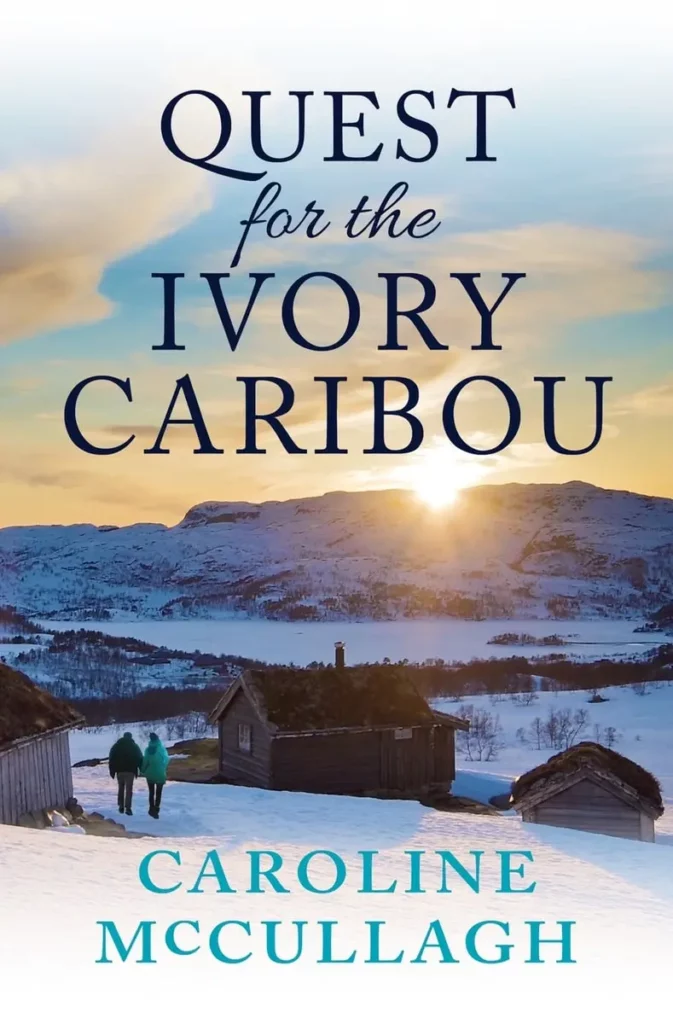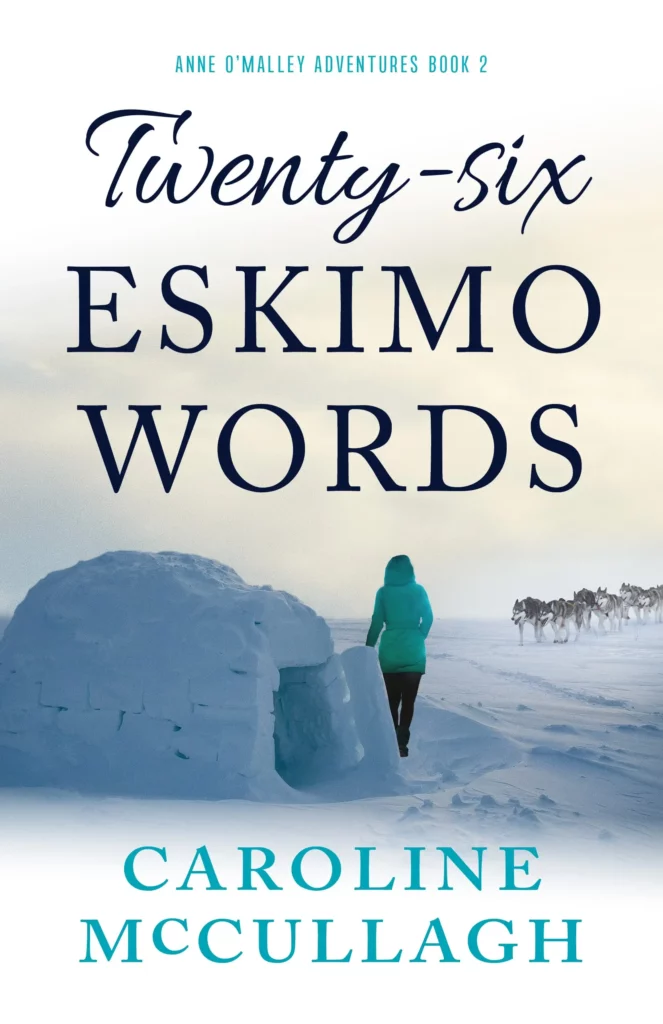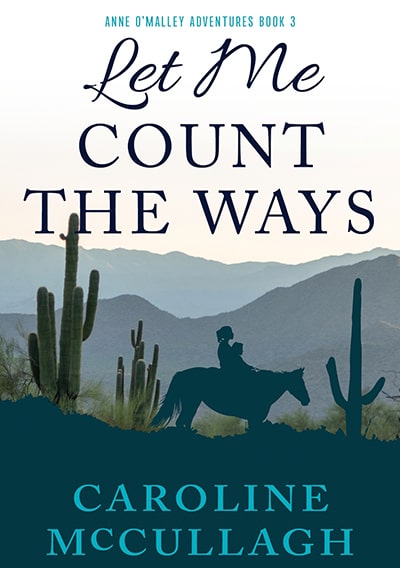Brendan & Ivala’s Songs
“You know, I told you I learned English from Marcia, but that’s not totally accurate. I didn’t know it at the time, but I actually learned my first English from some songs Brendan taught my grandmother. She taught them to me. I have a strong memory of singing ‘In the Good Old Summertime’ with my grandmother in our snow house when I was about five years old. I found out later it was a popular song when Brendan came to Canada. Some other songs too. We didn’t know what the words meant. I didn’t even know it was English, but my grandmother told me the stories the songs told.”
“I heard you singing ‘Bicycle Built for Two.’ Was that one of the songs Brendan taught your grandmother?”
“Yes. When did you hear me singing?”
“Oh, I don’t know. At the house. You were somewhere. I walked in. You were singing. I guess you were singing to yourself.” I knew perfectly well when I’d heard him. He sang when he changed his shirt. I just didn’t want to admit I’d stood there long enough to hear him sing that song
Quest for the Ivory Caribou
Page 93
“In the Good Old Summer Time"
It is an American Tin Pan Alley song first published in 1902 with music by George Evans and lyrics by Ren Shields. J. W. Myers first recorded it in 1902 on a wax cylinder (called a record). It’s quite probable that Brendan would have heard it. His family was moneyed and would have had a phonograph. IN THE GOOD OLD SUMMERTIME/(1903) J. W. MYERS/ COVER BY DALOY CHANNEL – YouTube
There’s a time in each year
That we always hold dear,
Good old summer time;
With the birds and the trees-es
And sweet scented breezes,
Good old summer time.
When your day’s work is over,
Then you are in clover,
And life is one beautiful rhyme.
No trouble annoying,
Each one is enjoying
The good old summer time.
(Refrain)
In the good old summer time,
In the good old summer time,
Strolling thro’ the shady lanes
With your baby mine;
You hold her hand and she holds yours,
And that’s a very good sign
That she’s your tootsie wootsie
In the good old summer time.
To swim in the pool,
You’d play “hooky” from school,
Good old summer time;
You’d play “ring-a-rosie”
With Jim, Kate and Josie,
Good old summer time,
Those days full of pleasure
We now fondly treasure,
When we never thought it a crime
To go stealing cherries,
With face brown as berries,
Good old summer time.
(Refrain)
In the good old summer time,
In the good old summer time,
Strolling thro’ the shady lanes
With your baby mine;
You hold her hand and she holds yours,
And that’s a very good sign
That she’s your tootsie wootsie
In the good old summer time.
"Daisy Bell (Bicycle Built for Two)”
Written by British songwriter Harry Dacre in 1892 and first recorded the following year. Daisy Bell – Wikipedia
There is a flower
Within my heart,
Daisy, Daisy!
Planted one day
By a glancing dart,
Planted by Daisy Bell!
Whether she loves me
Or loves me not,
Sometimes it’s hard to tell;
Yet I am longing
To share the lot
Of beautiful Daisy Bell!
(Refrain)
Daisy, Daisy,
Give me your answer do!
I’m half-crazy,
All for the love of you!
It won’t be a stylish marriage,
I can’t afford a carriage,
But you’ll look sweet upon the seat
Of a bicycle built for two.
We will go tandem
As man and wife,
Daisy, Daisy!
Peddling away
Down the road of life,
I and my Daisy Bell!
When the road’s dark
We can both despise
P’licemen and lamps as well;
There are bright lights
In the dazzling eyes
Of beautiful Daisy Bell!
(Refrain)
I will stand by you
In wheel or woe,
Daisy, Daisy!
You’ll be the bell(e)
Which I’ll ring, you know!
Sweet little Daisy Bell!
You’ll take the lead
In each ‘trip’ we take,
Then if I don’t do well,
I will permit you to
Use the brake,
My beautiful Daisy Bell!
(Refrain)
Daisy, Daisy,
Give me your answer; do!
I’m half-crazy,
All for the love of you!
It won’t be a stylish marriage.
I can’t afford a carriage.
But you’ll look sweet upon the seat
Of a bicycle built for two.
We stopped talking and watched the lights.
Jack started humming.
“That’s ‘Frankie and Johnny.’ Is that one of your grandfather’s songs?”
“It is.”
“I know the words.” I started singing softly. “Frankie and Johnnie were lovers/O, Lordy, how they could love/They swore to be true to each other/Just as true as the stars above./He was her man/But he done her wrong.”
He smiled. “Perhaps you know the other verses.”
“I used to, but I don’t know if I remember them now.”
“Let’s see.”
He sang, “Frankie and Johnny went walking,” and I did remember and joined him. We sang it all the way to the end.
“Do you know ‘My Grandfather’s Clock’?” I asked.
“Yes.”
I have no idea of how long we sat there singing. After a while, I felt drowsy, but I didn’t want to go in. I was having too much fun.
Quest for the Ivory Caribou
Page 111
“Frankie and Johnnie”
It is a traditional song that dates back to the 19th century. It comes in many different versions with different spellings and even different names for the two lead characters. Carl Sandburg in The American Songbook cites one collector who had found 110 different versions. The one Sandburg presents in his book has 28 verses, many of them not fit for a family audience because Frankie is a prostitute and Johnny is her pimp. Most of them were not verses my family sang on our many road trips from San Diego to my Uncle Jay and Aunt Mary’s ranch in Wellton, Arizona, in the 1940s and ’50s. 6/23/20: “Frankie and Johnny” by Gene Greene (1912) – Before the Big Bang
Frankie and Johnny were lovers.
O, Lordy, how they could love.
They vowed to be true to each other,
As true as the stars above.
(Refrain)
He was her man
But he done her wrong.
Frankie and Johnny went walking,
Johnnie in his brand new suit.
“O, Good Lord,” said Frankie,
“Don’t my man look cute?”
(Refrain)
Frankie went down to the hotel,
Looked in the window so high.
There she saw her man Johnny,
A-loving’ up Alice Bly.
(Refrain)
Frankie threw back her kimono,
Took out her forty-four.
Rooty-toot-toot, three times did she shoot,
Right through the hardwood door.
(Refrain)
“Roll me over easy,
Roll me over slow.
Roll me over easy, boys,
Cause my wounds they hurt me so.”
I was her man,
But I did her wrong.
Drive out your rubber tired carriage,
Drive out your rubber tired hack.
There’s twelve men going to the graveyard,
But eleven coming back.
He was her man,
But he done her wrong.
"My Grandfather's Clock"
Henry Clay Work wrote “My Grandfather’s Clock” in 1876. The Oxford English Dictionary says the song was the origin of the term “grandfather clock” for a longcase clock.
Harry McDonough and the Edison Quartet (Later known as the Haydn Quartet) created the earliest known recording of this song in 1905. You can hear it at https://archive.org/details/MyGrandfathersClock/GrandfathersClock.wav.
My grandfather’s clock was too large for the shelf,
So it stood ninety years on the floor;
It was taller by half than the old man himself,
Though it weighed not a pennyweight more.
It was bought on the morn of the day that he was born,
And was always his treasure and pride;
But it stopped short — never to go again —
When the old man died.
(Refrain)
Ninety years without slumbering,
(Tick, tock, tick, tock).
His life’s seconds numbering,
(tick, tock, tick, tock).
It stopped short never to go again when the old man died.
In watching its pendulum swing to and fro,
Many hours he spent as a boy.
And in childhood and manhood, the clock seemed to know
And to share both his grief and his joy.
For it struck twenty-four when he entered at the door
With a blooming and beautiful bride;
But it stopped short — never to go again —
When the old man died.
(Refrain)
My grandfather said that of those he could hire,
Not a servant so faithful he found;
For it wasted no time, and had but one desire —
At the close of each week to be wound.
And it kept in its place — not a frown upon its face,
And its hands never hung by its side.
But it stopped short — never to go again —
When the old man died.
(Refrain)
It rang an alarm in the dead of the night —
An alarm that for years had been dumb;
And we knew that his spirit was pluming for flight —
That his hour of departure had come.
Still the clock kept the time, with a soft and muffled chime,
As we silently stood by his side;
But it stopped short — never to go again —
When the old man died.
(Refrain)
Ninety years without slumbering,
(tick, tock, tick, tock),
His life’s seconds numbering,
(tick, tock, tick, tock),
It stopped short never to go again when the old man died.



